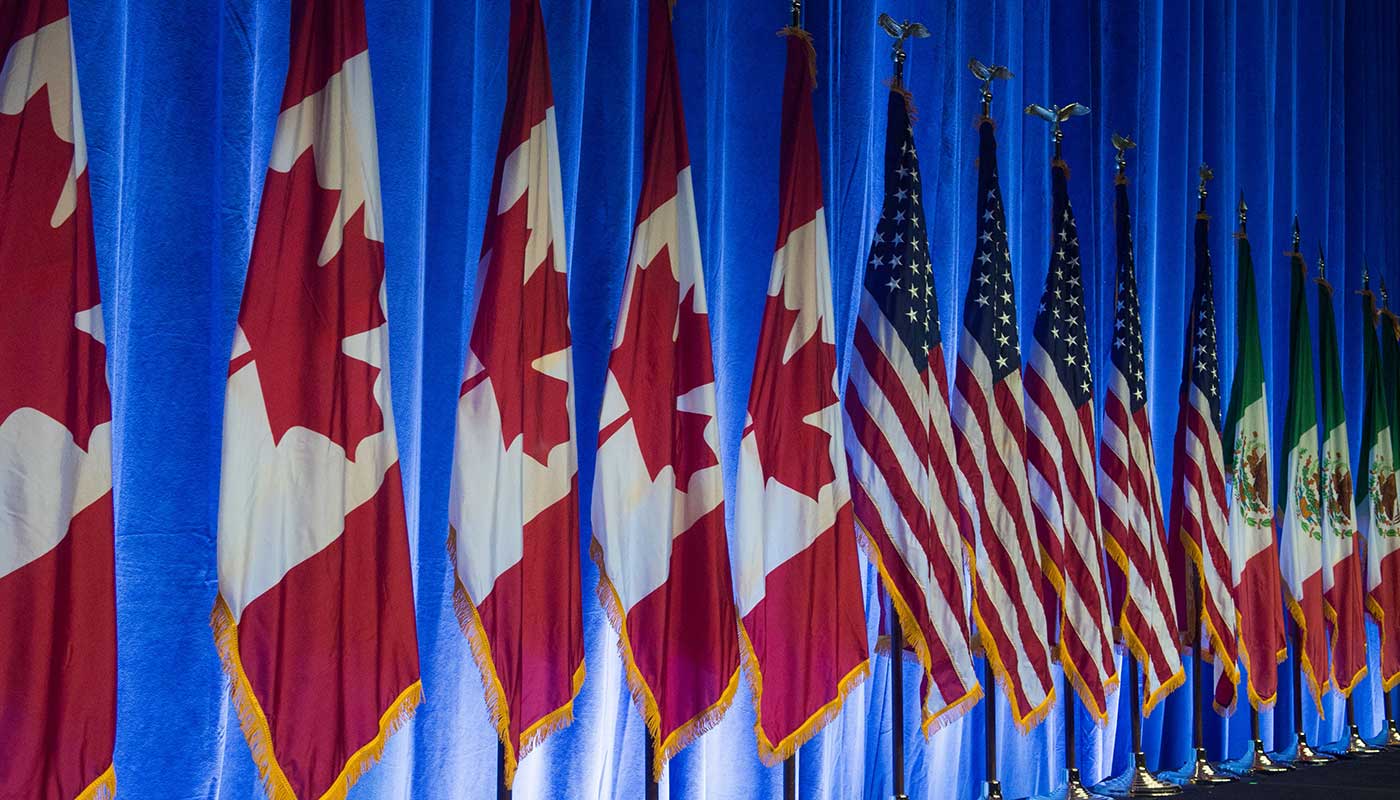Why the US has back-peddled on steel and aluminium tariffs
Trump eases levies on Canada and Mexico, boosting hopes for a new North American free trade agreement


A free daily email with the biggest news stories of the day – and the best features from TheWeek.com
You are now subscribed
Your newsletter sign-up was successful
The US administration backed off on imposing tariffs on steel and aluminium imports from Canada and Mexico on Friday, as it simultaneously agreed to delay planned levies targeting carmarkers in the EU and Japan.
The North American Free Trade Agreement (Nafta) was dissolved by President Trump last year, and plans to replace it with the United States Mexico Canada Agreement (USMCA) were put on hold in March 2018 after the US resurrected a Cold War-era trade law that raised tariffs of 25% on steel and 10% on aluminium.
However, in a move that will hearten the US manufacturing industry, the levies have now been reversed, resuscitating the prospect of the USMCA, or an equivalent, being ratified. “No quotas were agreed to replace the levies, as Washington had originally sought”, says the Financial Times, although a new monitoring system could opt to reimpose tariffs on certain products.
The Week
Escape your echo chamber. Get the facts behind the news, plus analysis from multiple perspectives.

Sign up for The Week's Free Newsletters
From our morning news briefing to a weekly Good News Newsletter, get the best of The Week delivered directly to your inbox.
From our morning news briefing to a weekly Good News Newsletter, get the best of The Week delivered directly to your inbox.
In an interview with Canadian state broadcaster CBC, Canada's Foreign Minister Chrystia Freeland said: “We were very clear that as long as the 232 tariffs were there it would be very, very hard for us to ratify the new NAFTA, and that is why we did not table the legislation. Now that that big obstacle is lifted, full steam ahead.”
The moves mark a thawing of previously aggressive US trade policy towards traditional allies following decades of free-trade orthodoxy, and come in response to pressure on Washington to bolster the domestic industry amid the recent ratcheting-up of tensions in the US-China trade war.
According to the New York Times, “the actions remove the threat of an all-encompassing global trade war and allow Mr. Trump to focus on pushing China to agree to the United States’ trade terms”.
They also agreed to prevent the shipment of aluminium and steel products made outside of Canada and the US to one another, a measure that appeared directed against China.”
A free daily email with the biggest news stories of the day – and the best features from TheWeek.com
The BBC suggests that “trade peace in North America might even strengthen his hand in negotiations with China”.
“Few weeks have shown more clearly how the president rejects the free trade gospel long favored by both Democrats and Republicans”, the Washington Post points out.
“The businessman president... backs the active use of government power to counter what he sees as market distortions caused by other nations’ trade barriers and industrial policies.”
William Gritten is a London-born, New York-based strategist and writer focusing on politics and international affairs.
-
 The environmental cost of GLP-1s
The environmental cost of GLP-1sThe explainer Producing the drugs is a dirty process
-
 Greenland’s capital becomes ground zero for the country’s diplomatic straits
Greenland’s capital becomes ground zero for the country’s diplomatic straitsIN THE SPOTLIGHT A flurry of new consular activity in Nuuk shows how important Greenland has become to Europeans’ anxiety about American imperialism
-
 ‘This is something that happens all too often’
‘This is something that happens all too often’Instant Opinion Opinion, comment and editorials of the day
-
 Currencies: Why Trump wants a weak dollar
Currencies: Why Trump wants a weak dollarFeature The dollar has fallen 12% since Trump took office
-
 TikTok: New owners, same risks
TikTok: New owners, same risksFeature What are Larry Ellison’s plans for TikTok US?
-
 Trump wants a weaker dollar, but economists aren’t so sure
Trump wants a weaker dollar, but economists aren’t so sureTalking Points A weaker dollar can make imports more expensive but also boost gold
-
 Leadership: A conspicuous silence from CEOs
Leadership: A conspicuous silence from CEOsFeature CEOs were more vocal during Trump’s first term
-
 The end for central bank independence?
The end for central bank independence?The Explainer Trump’s war on the US Federal Reserve comes at a moment of global weakening in central bank authority
-
 Can Trump make single-family homes affordable by banning big investors?
Can Trump make single-family homes affordable by banning big investors?Talking Points Wall Street takes the blame
-
 Phish food for thought: Ben & Jerry’s political turmoil
Phish food for thought: Ben & Jerry’s political turmoilIn the Spotlight War of words over brand activism threatens to ‘overshadow’ the big ice cream deal
-
 What a rising gold price says about the global economy
What a rising gold price says about the global economyThe Explainer Institutions, central banks and speculators drive record surge amid ‘loss of trust’ in bond markets and US dollar
